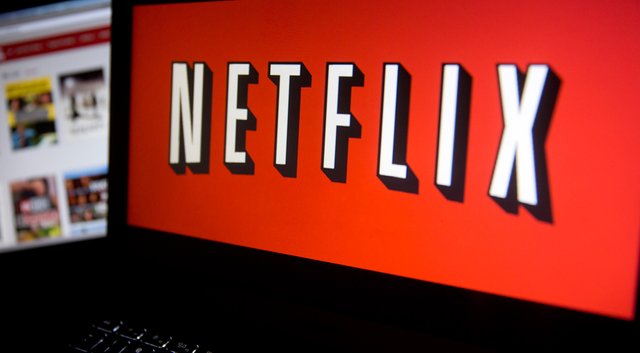The Cannes Protectionists Are Wrong - Streaming Is The Saviour Of Cinema
If you need any more reason to sneer at some of the establishment cine-snobs that attend Cannes Film Festival, check out their reaction to the astonishing new film Okja.
As far as the film’s quality is concerned, that’s not in question. It’s widely acclaimed and touted for best 10 lists come the year’s end. Okja’s crime is more esoteric: it’s a Netflix original production, and due to French law, it can’t be screened in any French cinema until 36 months after release. The Netflix logo was booed in the first screening.
Reason being, the film represents an attack on traditional forms of movie viewing; movies are for movie theatres, they say. Others have labeled the production “good television” funded by corporate monster bent on destroying the concept of cinema.
I say, on the contrary, it is these protectionists that are holding cinema back. Netflix has a chance to save it.
The assumption behind their arguments is that there is something special or sacred about viewing a film at a theatre. Yet for many decades now, the primary viewing platform of what we call “film” has been on our televisions. Now we are seeing a shift to laptops, tablets and other mobile devices. Masses of people are still watching moving images old and new that are “films” by any reasonable definition of the word. Is Lawrence of Arabia no longer a film once it’s been shown on an iPad? The Godfather, 2001: A Space Odyssey, Raiders of the Lost Ark?
As the ratio of films seen in actual movie theatres to other platforms diminishes, the traditionalists, protectionists and luddites will wail, but the form will improve.
It’s accepted wisdom that we are experiencing the golden age of television, yet the most pedestrian period in cinema history. Why is this? I have an idea. The organisers at the Cannes Film Festival seem not to have given it a moment’s thought.
Here are the most common complaints about modern cinema: lack of originality, formulae has turned to replication, too many adaptations and remakes, everything has to be a “franchise”. In other words, too much focus on attempting to recreate past successes, playing it safe instead of forging new ground and taking risks, by the numbers, politically dubious, lowest-common-denominator sensibility, and stupid.
Compare that to the meteoric rise in quality of television over the past decade: original, intelligent, politically and morally challenging, well-constructed, engaging, addictive, and plain awesome. All fuelled by this revolution in technology: streaming.
I wonder if there is something we can learn from this?
Netflix as the film laboratory
The main reason given for the dire state of things in the world of cinema is the greater and greater risk involved in investment in any movie. As this new technology disseminates, audiences need greater and greater incentive to go out and pay to sit in a cold theatre with annoying people.
For that reason, the only films that make money in the 21st Century are epic spectacles with a pre-established fanbase.
Cinema is no longer the format for the range of style and creativity it once was. Those days are long gone. The film theatre is for one thing: to facilitate Transformers: The Last Knight (the fifth instalment), and Pirates of the Caribbean: Dead Men Tell No Tales (the fifth instalment), giant, smashy, crashy head-bangers without a thought between them. Corporate beasts that the studios know will make money regardless of the quality involved.
And expect this to get worse as technology develops further, production becomes more expensive and audiences change. Furthermore, attempting to inhibit this progress based on arbitrary definitions of what cinema is will only further incentivise pedestrianism.
Not every Netflix original movie has been a runaway success. The Brad Pitt vehicle War Machine and the Crouching Tiger Hidden Dragon sequel didn't exactly excite the critics and audiences, but this is all part of the process. By trial and error, risk and reward, creators and financiers get closer and closer to a winner. We’ve found our first one.
The case of Okja.
Let’s lay out the premise of this strange, incredible new movie called Ojka, by stylish director Bong-Joon Ho: a Korean/British co-production about a genetically modified giant pig with a pro-vegetarian, anti-corporate theme.
Does that seem like the ingredients for a blockbuster to you? Would a film like this ever in a million years get traction in movie theatres?
If Breaking Bad was a movie, it would be a “cult classic” relegated to a small following from DVD sales. If House of Cards was a movie, it would be an Oscar-nominated oddity with a lukewarm box office return. Orange is the New Black, are you kidding me? The entire thing is set in a female prison - it would never be financed.
It’s shocking that intelligent film-goers aren't embracing this new technology.
And they're already calling it Netflix’s first “Blockbuster”
As this Guardian piece lauds Okja for its lacerations of “late capitalism”, its general point is pro-capitalism, pro-innovation, pro-progress - Joon Ho himself supports my point: the only reason he approached Netflix in the first place was he felt he could make the film he wanted to make without unnecessary interjections by studio heads such as the Weinsteins.
The prospect of people that finance a daring film-maker such as Joon Ho being rewarded by millions of streams excites the life out of me. It’s taken us over 100 years, but I think we’ve finally found the platform to truly close the gap between talent and money. Yes, there will still be crap, but now the problem of interesting projects struggling to get off the ground will lessen (of many interesting projects being put out by Netflix, Martin Scorsese’s The Irishman is coming). Mark my words, we’re going to be seeing an explosion in cinematic creativity.


